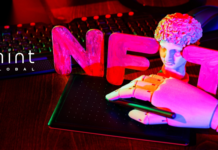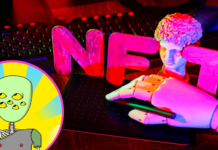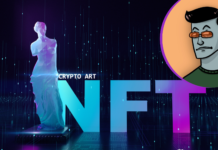
Anyone who’s ever owned their own business, or even freelanced, knows that resolving disputes can be one of the toughest and most expensive parts of your business life. Even in cases where there’s a clear contract suggesting which party is “in the right,” if you’ve been wronged, pursuing justice means taking on expensive legal fees and putting time – often months or years – into the court system. And at the end of that long, expensive legal road you’re subject to the judge’s verdict, which can be tough to predict. Being in the right doesn’t necessarily guarantee you’ll win in court.
Many businesses – especially smaller business – leave money on the table or make peace with losing disputes they should have won, simply because pursuing justice would be too expensive and time-consuming to make the ultimate payoff – if it ever came through – worth it.
Jur, a blockchain-based platform for legal agreements and contract resolution, aims to solve that problem by offering dispute resolution that’s fast, easy, and affordable.
Jur 101
The basic idea behind Jur is that business relationships work best when they’re trustless. In a typical employer/contractor relationship, for example, the employer has to worry about whether the contractor will deliver their services on time and as agreed upon, and the contractor has to worry about whether they’ll get paid on time and as agreed upon. When that doesn’t happen, things can get very messy very fast.
Smart contracts provide a way to create trustless business arrangements, but existing smart contract platforms don’t have an effcient mechanism for solving disputes when they arise. Jur is a blockchain system aimed at fixing that via a series of smart contracts designed to act as an incorruptible “oracle” that can resolve disputes and make judgements quickly and accurately at almost zero cost.
To accomplish that, Jur relies on the decentralized wisdom of the crowd. With financial incentives generated by Jur’s economy, users will vote on disputes and Jur’s system will analyze and weight those votes before issuing an official resolution.

Looking at comparative hypothetical examples may be the easiest way to understand Jur.
Traditional Dispute Resolution:
Imagine you’re a freelance artist. A company hires you to design their logo for $1000. You agree, and both parties sign a contract agreeing on the services, the fee, and due dates. You get to work, deliver the logo, and wait, but your payment never arrives. Emails and calls to your contacts at the company get only vague responses, and months later, your $1000 hasn’t shown up.
What can you do? You could attempt to pursue legal action, but that’s going to cost much more than the $1000 you initially billed for. You can ask for legal fees as part of the damages in your suit, of course, but if you lose the case, you’ll be out the $1000 and all the legal fees. Even if you win, you’ll have spent hours and hours of time doing case-related research, appearing in court, thinking about the case, etc. Unless you don’t value your own time, the cost of all of that time and effort will quickly outweigh the $1000 you’re fighting for. Even if you win, you still lose.
Jur Dispute Resolution:
Imagine the same situation: you’re an artist who’s been hired to design a logo. This time, you use Jur’s contract creation wizard tool to build a simple smart contract between you and the company. That contract includes an escrow requirement and a mutual agreement to abide by Jur’s resolution system, so when a payment dispute arises, the question of who’s in the right is put to Jur’s system.
Your case will then come before Jur’s decentralized network of users, who vote on the winner. Users who vote “correctly” – who pick the same winner as most other users – are rewarded with Jur tokens, while users who vote incorrectly get nothing, so there’s a built-in impetus to take the vote seriously. Jur also uses game theory and other systemic protections to ensure that this user voting system can’t be hijacked, and users can choose to have their disputes resolved by Jur’s public hub of users, or any private, vetted hub of users both parties agree on.
Jur’s voters see quickly that you’ve fulfilled the terms of your contract, delivering a high quality logo in the time-frame and to the specifications spelled out in the contract. Therefore, a majority of them vote for you, and you win the dispute. Jur’s system can then automatically pay you, pulling the funds from escrow immediately. Whereas in a court case you might not see your money for months or years, with Jur you could have it in your account as soon as 24 hours after the dispute begins.

The Tech
Jur’s system will be a combination of an on-chain layer and an off-chain layer.
The on-chain layer will consist of arbitration smart contracts (with and without escrow) and the blockchain infrastructure for user voting hubs, to ensure that votes and user identities cannot be changed or tampered with.
Off-chain, Jur will implement a series of easy-to-use tools for creating contracts and integrating them with Jur’s blockchain system. Users will be able to upload existing contracts, create custom contracts for themselves, and purchase contract templates created by other users. They can also create voting communities, hubs with vetted voters that other users might choose for dispute resolution. Users will also be able to vote via a web interface that’s linked to the Jur blockchain.
Token Details
Jur’s chain will be part of the Ethereum network, powered by an ERC20 utility token called JUR. JUR will be used as a means of payment and escrow collateral for contracts on the Jur platform, and allocating JUR will be the way users vote on disputes. Users will also use Jur to pay for Jur-related services, like buying contract templates.
Jur is currently in the process of a private token sale, ramping up towards a public token sale scheduled for the second half of 2018. 400 million of a total 1 billion JUR tokens will be sold to the public, with the rest reserved for the team, an adoption drop, and Jur’s existing angel and seed investors.
The Team
As with all pre-ICO projects, the big caveat is that Jur’s plans are still in the very early stages. There’s no doubt the project addresses a real need, but whether it can effectively execute on those plans – or compete with similar platforms like Kleros – remains to be seen.
The good news is that Jur’s team looks quite promising. Co-founder and CEO Alessandro Palombo has a Masters and a Ph.D in addition to a host of entrepreneurial experiences, having founded his first company in 2013. The rest of the leadership team is similarly credentialed. If it can call on that expertise and experience, it seems likely that Jur will be able to build the platform laid out in its whitepaper and deliver a true revolution in the world of online legal services, contracts, and dispute resolution.



































